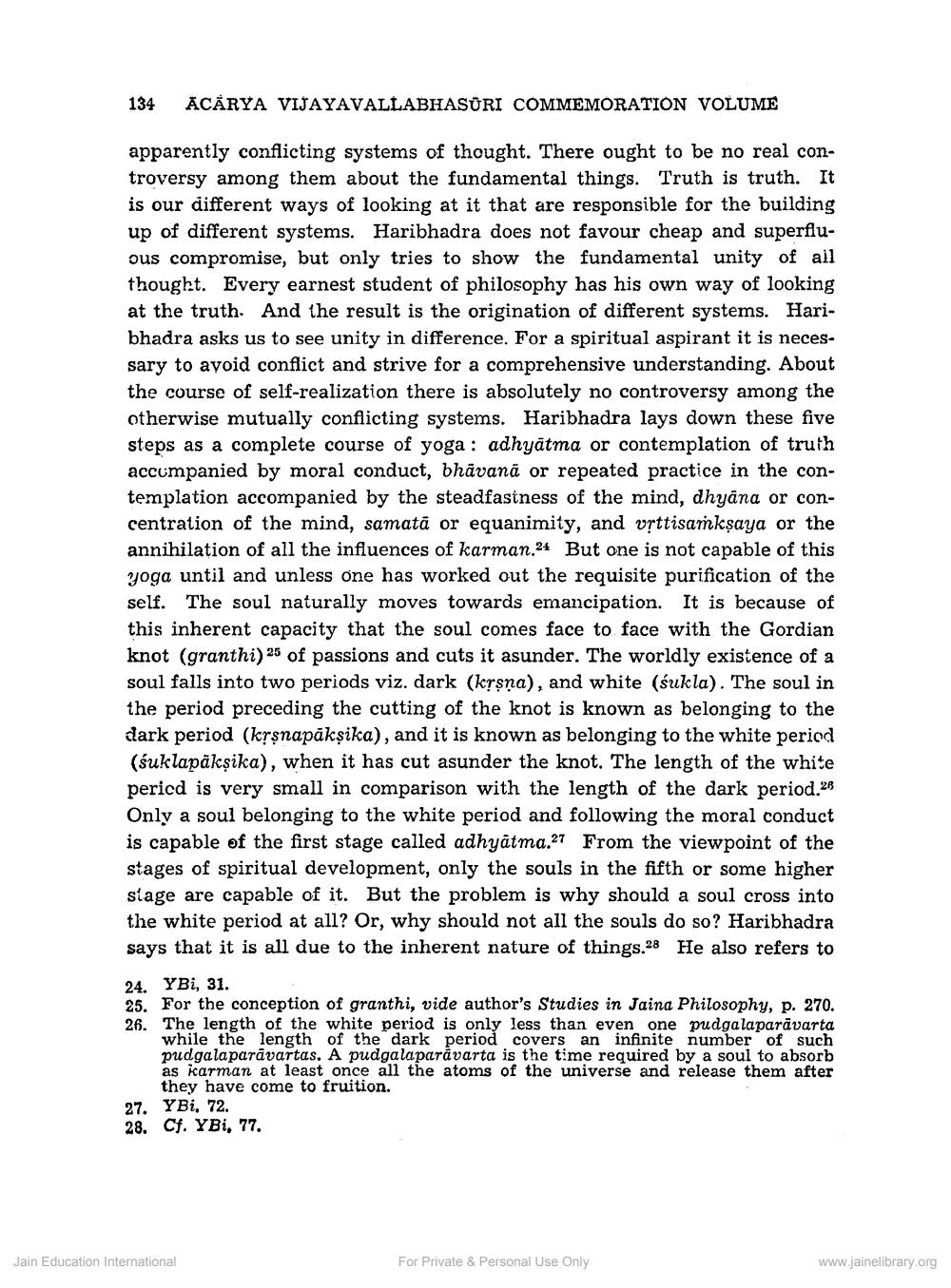Book Title: Acarya Haribhadras Comparative Studies in Yoga Author(s): Nathmal Tatia Publisher: Z_Vijay_Vallabh_suri_Smarak_Granth_012060.pdf View full book textPage 6
________________ 134 ACĂRYA VIJAYAVALLABHASŪRI COMMEMORATION VOLUME apparently conflicting systems of thought. There ought to be no real controversy among them about the fundamental things. Truth is truth. It is our different ways of looking at it that are responsible for the building up of different systems. Haribhadra does not favour cheap and superfluous compromise, but only tries to show the fundamental unity of all thought. Every earnest student of philosophy has his own way of looking at the truth. And the result is the origination of different systems. Haribhadra asks us to see unity in difference. For a spiritual aspirant it is necessary to avoid conflict and strive for a comprehensive understanding. About the course of self-realization there is absolutely no controversy among the otherwise mutually conflicting systems. Haribhadra lays down these five steps as a complete course of yoga : adhyātma or contemplation of truth accompanied by moral conduct, bhāvanā or repeated practice in the contemplation accompanied by the steadfastness of the mind, dhyāna or concentration of the mind, samatā or equanimity, and vịttisarkṣaya or the annihilation of all the influences of karman.24 But one is not capable of this yoga until and unless one has worked out the requisite purification of the self. The soul naturally moves towards emancipation. It is because of this inherent capacity that the soul comes face to face with the Gordian knot (granthi) 25 of passions and cuts it asunder. The worldly existence of a soul falls into two periods viz. dark (krsna), and white (sukla). The soul in the period preceding the cutting of the knot is known as belonging to the dark period (krsnapákşika), and it is known as belonging to the white period (śuklapāksika), when it has cut asunder the knot. The length of the white pericd is very small in comparison with the length of the dark period.28 Only a soul belonging to the white period and following the moral conduct is capable of the first stage called adhyātma.27 From the viewpoint of the stages of spiritual development, only the souls in the fifth or some higher stage are capable of it. But the problem is why should a soul cross into the white period at all? Or, why should not all the souls do so ? Haribhadra says that it is all due to the inherent nature of things.28 He also refers to 24. YBI, 31. 25. For the conception of granthi, vide author's Studies in Jaina Philosophy, p. 270. 26. The length of the white period is only less than even one pudgalaparāvarta while the length of the dark period covers an infinite number of such pudgalaparavartas. A pudgalaparavarta is the time required by a soul to absorb as karman at least once all the atoms of the universe and release them after they have come to fruition. 27. YBi, 72. 28. Cf. YBi, 77. Jain Education International For Private & Personal Use Only www.jainelibrary.orgPage Navigation
1 ... 4 5 6 7 8 9 10 11 12 13 14
